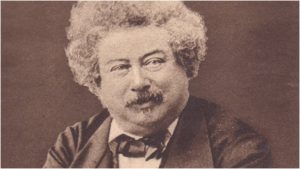
6 Operas Based on the Works of Alexandre Dumas-Père
By David SalazarAlexandre Dumas, père, is one of the most famous writers in the history of French literature. Some of his works, notably, “The Three Musketeers” and “The Count of Montecristo” have even transcended his homeland to become fixtures of the international literary canon.
Shockingly, it is his son who is better known in the opera world thanks in part to a little-known opera known as “La Traviata,” which is based on Alexandre Dumas-fils’ “La Dame aux Camelias.
And yet there are some operas based on the works of the legendary French author, even if they have never quite managed to establish a foothold in the standard repertoire.
Les Trois Mousquetaires
Based on the composer’s own famed novel, this opera was actually based on a libretto by Dumas with music by Albert Visetti. Unfortunately, the opera’s manuscript was lost in a fire during the siege of Paris.
Ascanio
It’s interesting that when you look at this list, this is the only opera featured that was composed by a Frenchman. Saint-Saën’s’ work is based on Paul Meurice’s “Benveunuto Cellini” which was in turn based on the historical novel by Dumas. This work premiered in 1890 and has never quite managed to establish any foothold in the standard repertory. It is worth noting that Meurice helped Dumas write the novel.
The Saracen & Gemma di Vergi
Dumas’ play “Charles VII Chez Ses Grands Vassaux” was the source of inspiration for the two operas noted. “The Sarancen” was written by César Cui and had its premiere in November 1899 in Saint Petersburg. “Gemma di Vergi” was created by Donizetti though the opera takes a completely different angle on the work, focusing on the childless wife of the Count of Vergi. While it has never become a staple of the standard repertoire, it is enjoying a resurgence of sorts this century.
Romulus
This is yet another opera based on a Dumas play. The comic opera was written by Louis Karchin and it premiered in 2007.
The Love of d’Artagnan
Another 20th century work, this time created by Mieczyslaw Weinberg in 1971. The work was heavily praised by Dmitri Shostakovich.


